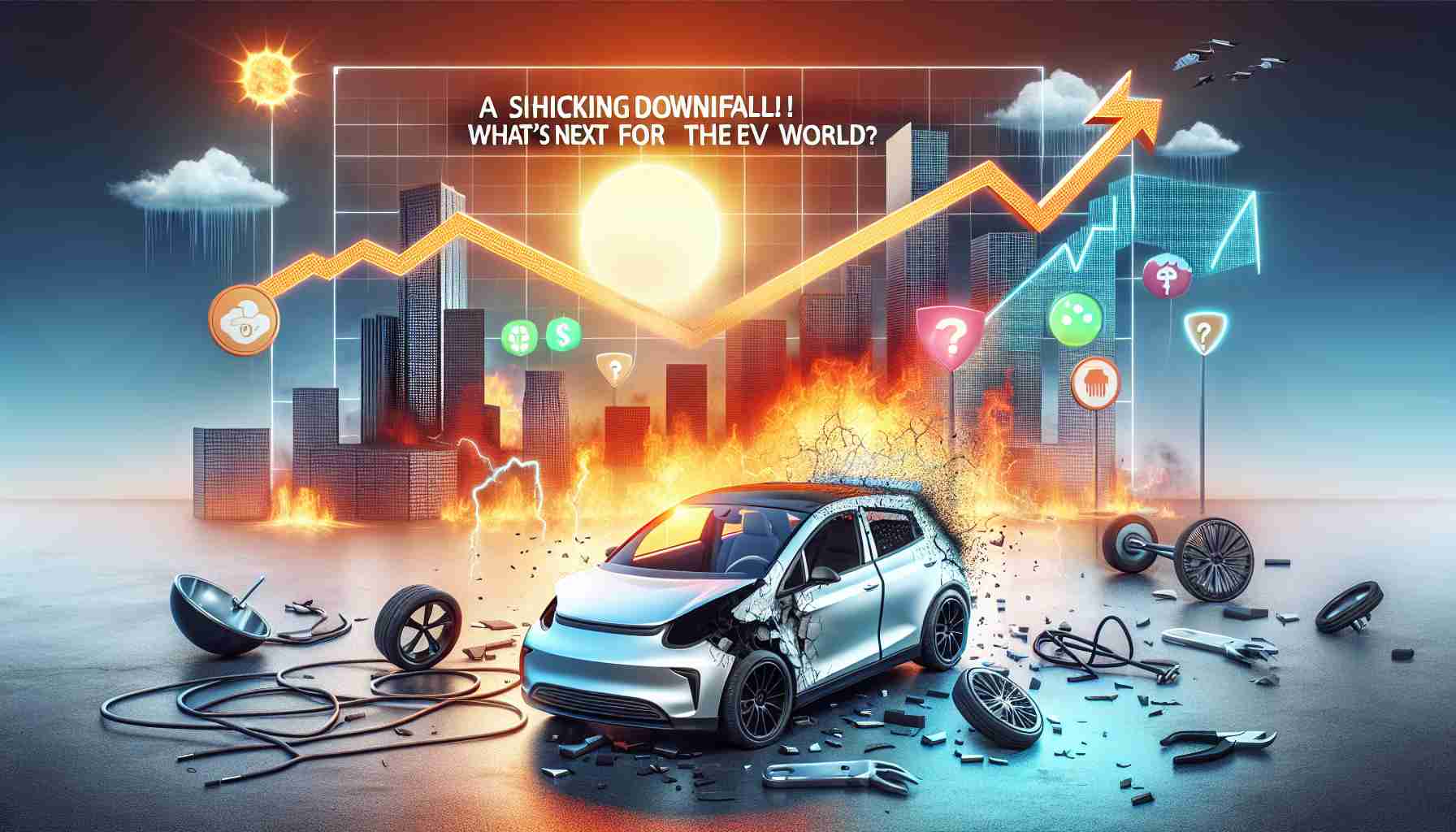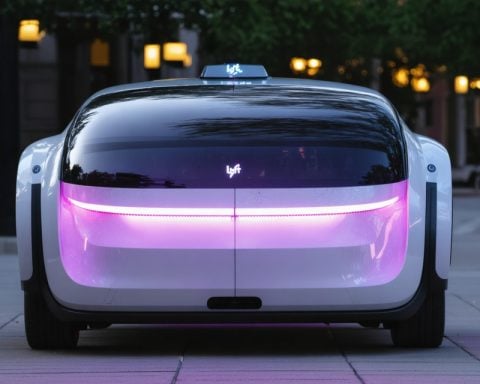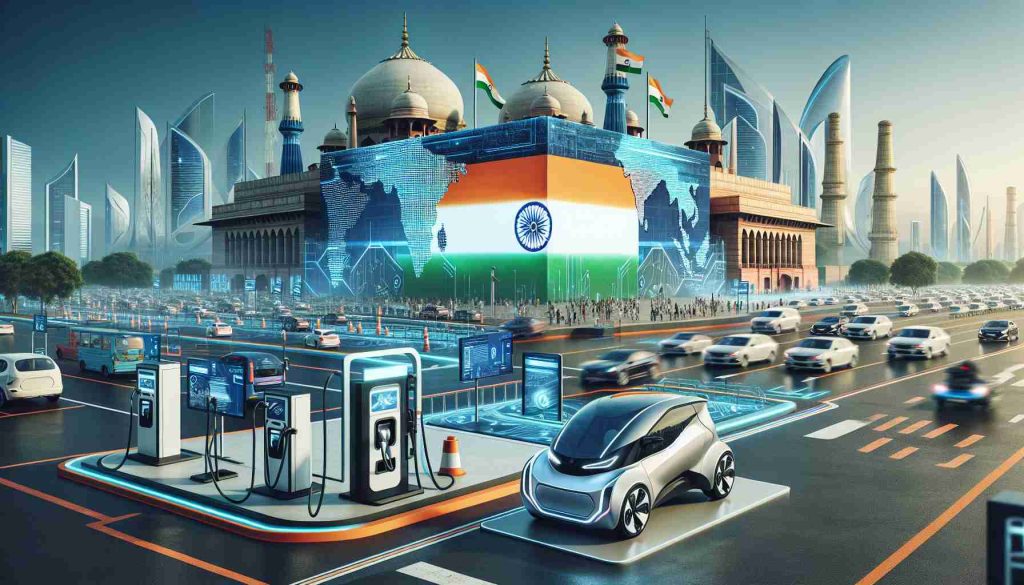A Troubling Turn for Electric Innovation
Canoo, the once-promising electric vehicle startup, has abruptly announced its closure and decision to file for Chapter 7 bankruptcy, sending shockwaves through the automotive industry. This unexpected turn of events has left investors and enthusiasts in disbelief, as the company struggled to find financial backing in a fiercely competitive sector.
In a moving statement, Canoo’s leadership recognized the invaluable commitment of their staff who tirelessly supported the company’s vision. They also lamented the challenges faced in securing crucial investments, despite noteworthy collaborations with significant organizations like NASA and the U.S. Postal Service.
While Canoo had plans for groundbreaking, versatile electric vehicles designed for urban living, continuous funding issues stymied its progress. Furthermore, the company’s attempts at workforce restructuring led to significant layoffs, particularly at its California facility.
Canoo’s dismantlement serves as a sobering reminder of the financial challenges that new players face within the EV market. As traditional manufacturers dominate the landscape, funding for emerging companies risks becoming ever more scarce. The repercussions of this bankruptcy could dampen investor confidence in innovative but unproven business models.
Ultimately, Canoo’s fate acts as a warning for the electric vehicle sector. The future of clean transportation may depend heavily on successful financial strategies and proven technologies amidst an ever-evolving marketplace.
The Shadows of Electric Innovation
Canoo’s downfall is emblematic of a larger trend that threatens the fabric of the electric vehicle (EV) sector. As companies vying for a slice of the burgeoning market face unyielding financial scrutiny, the implications of such closures resonate far beyond the boardroom. Investor confidence is at risk, potentially stalling advancements that could benefit society by decreasing carbon footprints and promoting sustainable transportation options.
The bankruptcy of Canoo may also underscore a troubling shift in the cultural landscape surrounding innovation. Startups once symbolized freedom and ingenuity; however, as the industry consolidates, the emergence of a risk-averse mentality may stifle creative approaches to solving urban mobility challenges. The failure of such an ambitious project raises questions about the viability of many other EV startups that could be on the brink, potentially impacting job markets dependent on growth in this sector.
From an environmental perspective, the closure may impede the accelerated adoption of electric vehicles necessary to combat climate change. The urgent need for diverse and effective EV solutions is paramount, yet the spotlight now turns to whether traditional automakers can adapt quickly enough to keep pace with expectations for innovation and sustainability.
In the global economy, Canoo’s struggles signal a turbulent shift where traditional auto manufacturing prowess may overshadow entrepreneurial ventures. As investment scarcity constricts opportunities for novel solutions in greener technologies, industries may pivot back toward established players, potentially sacrificing new advancements in favor of perceived stability. The long-term significance of this trend could reshape not just the automotive landscape but also the trajectory of environmental progress itself.
The Rise and Fall of Canoo: Lessons from Their Untimely Closure
Introduction
Canoo, an electric vehicle (EV) startup that once sparked excitement with its innovative designs and ambitious visions, has recently filed for Chapter 7 bankruptcy. This closure not only impacts its employees and investors but also sends ripples through the broader automotive industry. As the dust settles, it’s critical to analyze the implications of Canoo’s downfall, particularly regarding the EV market’s landscape and future prospects.
Key Features of Canoo’s Vehicle Concepts
Canoo aimed to differentiate itself in the crowded EV marketplace with its unique vehicle architecture. The company introduced concepts such as:
– Lifestyle Vehicles: Designed for urban dwellers, these vehicles emphasized versatility and adaptability, featuring a spacious interior and multi-functional layouts.
– Electric Delivery Vehicles: In collaboration with the U.S. Postal Service, Canoo attempted to create delivery solutions with an eye toward sustainability and efficiency.
– Innovative Battery Technology: Canoo’s platform promised modular options that could be tailored for different use cases, though these concepts were stymied by funding issues.
Pros and Cons of Canoo’s Approach
Pros:
– Innovative Concepts: Canoo’s focus on urban mobility solutions catered to a niche market that traditional automakers frequently overlooked.
– Collaboration with Esteemed Organizations: Partnerships with NASA and the U.S. Postal Service highlighted the potential credibility and demand for their innovative products.
Cons:
– Funding Difficulties: Despite its promising early concepts, Canoo failed to secure the investment needed to bring its visions to life.
– High Market Competition: The rapid expansion of established players like Tesla, Ford, and Rivian effectively limited Canoo’s ability to compete.
Trends and Market Insights
The EV market is currently witnessing numerous trends that could help future startups avoid Canoo’s fate:
1. Focus on Sustainable Practices: Companies are increasingly prioritizing sustainability in manufacturing processes, appealing to environmentally-conscious consumers.
2. Strategic Partnerships: Forming alliances with traditional automakers or technology firms can bolster financial backing and offer critical resources.
3. Direct-to-Consumer Sales Models: Bypassing traditional dealership networks lowers costs and helps build closer consumer relationships.
Limitations Faced by Startups
While innovation is vital, startups in the EV industry face several limitations, including:
– Access to Capital: As demonstrated by Canoo, securing funding remains a significant hurdle, especially against established brands.
– Regulatory Challenges: Navigating regulations, safety standards, and environmental laws can be a complex and expensive process.
– Market Penetration: Competing for market share with legacy automakers that benefit from brand loyalty and extensive distribution networks poses a substantial challenge.
Conclusion and Predictions
The closing of Canoo serves as a cautionary tale for emerging players in the electric vehicle market. As the industry matures, the focus may shift towards sustainable financial strategies, robust partnerships, and innovative yet practical solutions. It remains to be seen how the EV landscape will evolve in the wake of Canoo’s bankruptcy, but lessons learned from this failure could pave the way for future innovations in cleaner transportation.
For more insights into the automotive industry and electric vehicle developments, visit AutoTrader.
















